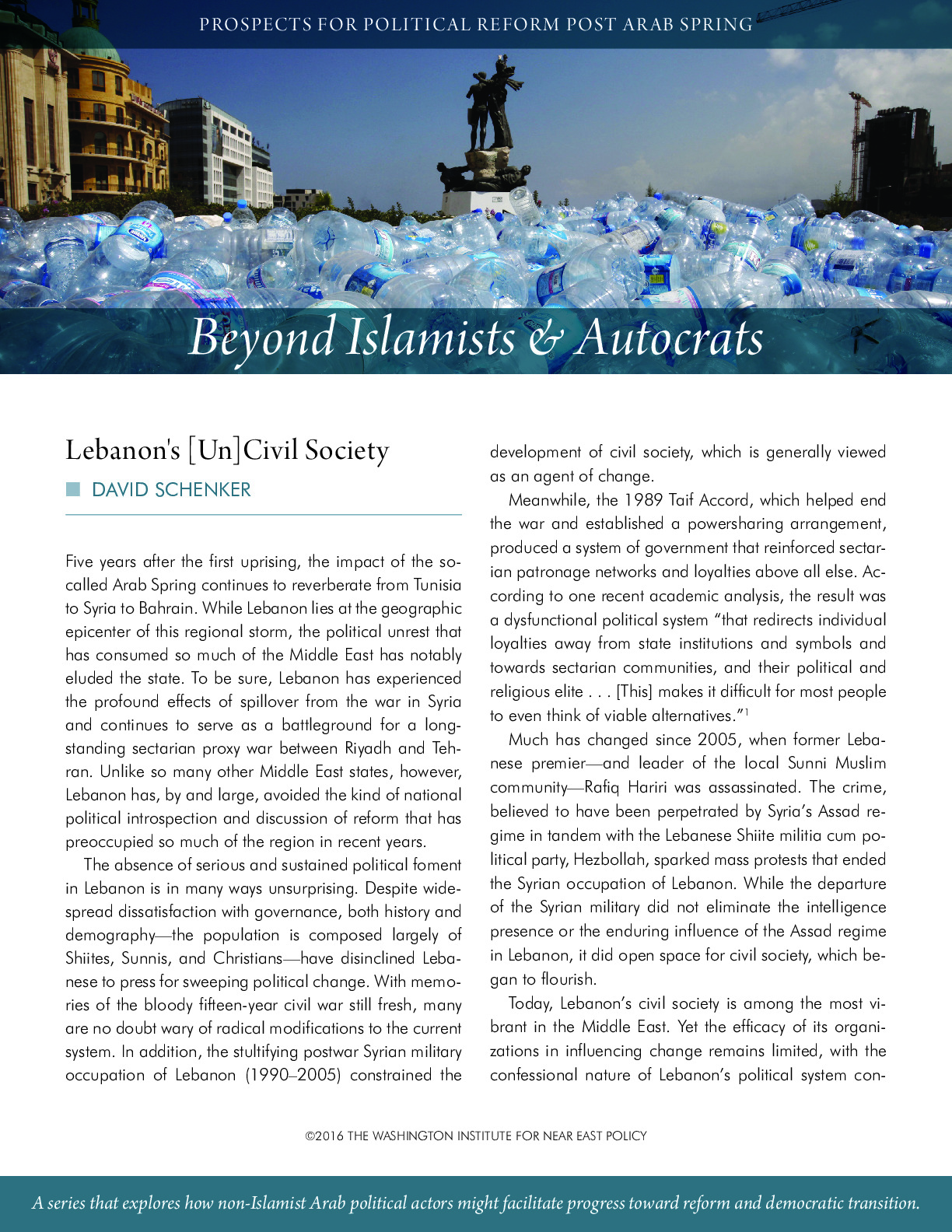

This contribution, the fifth in a series exploring prospects for political reform throughout the Middle East, considers the strengths and limitations of Lebanon’s robust civil society.
Spillover from the war in Syria has had a profound impact on the region, and perhaps nowhere more so than in Lebanon, where refugees from the conflict now constitute nearly 30 percent of the state’s population. In the absence of effective state institutions, Lebanese civil society organizations have played a critical role in providing assistance to the refugees. Nevertheless, while Lebanon’s civil society is among the most vibrant in the Middle East, the efficacy of its organizations in influencing change in Beirut has been limited, due in large part to the sectarianism that characterizes Lebanese politics.
This essay, the fifth in a series exploring prospects for political reform throughout the Middle East, considers the strengths and limitations of Lebanon’s robust civil society. It provides an overview of Lebanon’s political landscape, discusses the role of civil society, and assesses this sector’s efforts and its prospects for promoting positive change in this historically dysfunctional state.
THE AUTHOR
David Schenker is the Aufzien fellow and director of the Program on Arab Politics at The Washington Institute. Previously, he served in the Office of the Secretary of Defense as Levant country director, the Pentagon's top policy aide on the Arab countries of the Levant, and was awarded the Office of the Secretary of Defense Medal for Exceptional Civilian Service in 2005.
He is the author of Dancing with Saddam: The Strategic Tango of Jordanian-Iraqi Relations (copublished with Lexington Books, 2003), Palestinian Democracy and Governance: An Appraisal of the Legislative Council (2001), and a chapter on U.S.-Lebanese relations in Lebanon: Liberation, Conflict, and Crisis (Palgrave, 2009). More recently, he published Egypt’s Enduring Challenges (Washington Institute, 2011), a monograph focusing on post-Mubarak Egypt. His writings on Arab affairs have also appeared in a number of prominent scholarly journals and newspapers, including the Wall Street Journal, the Los Angeles Times, Politico, and the Atlantic.
Beyond Islamists and Autocrats Essay Series



